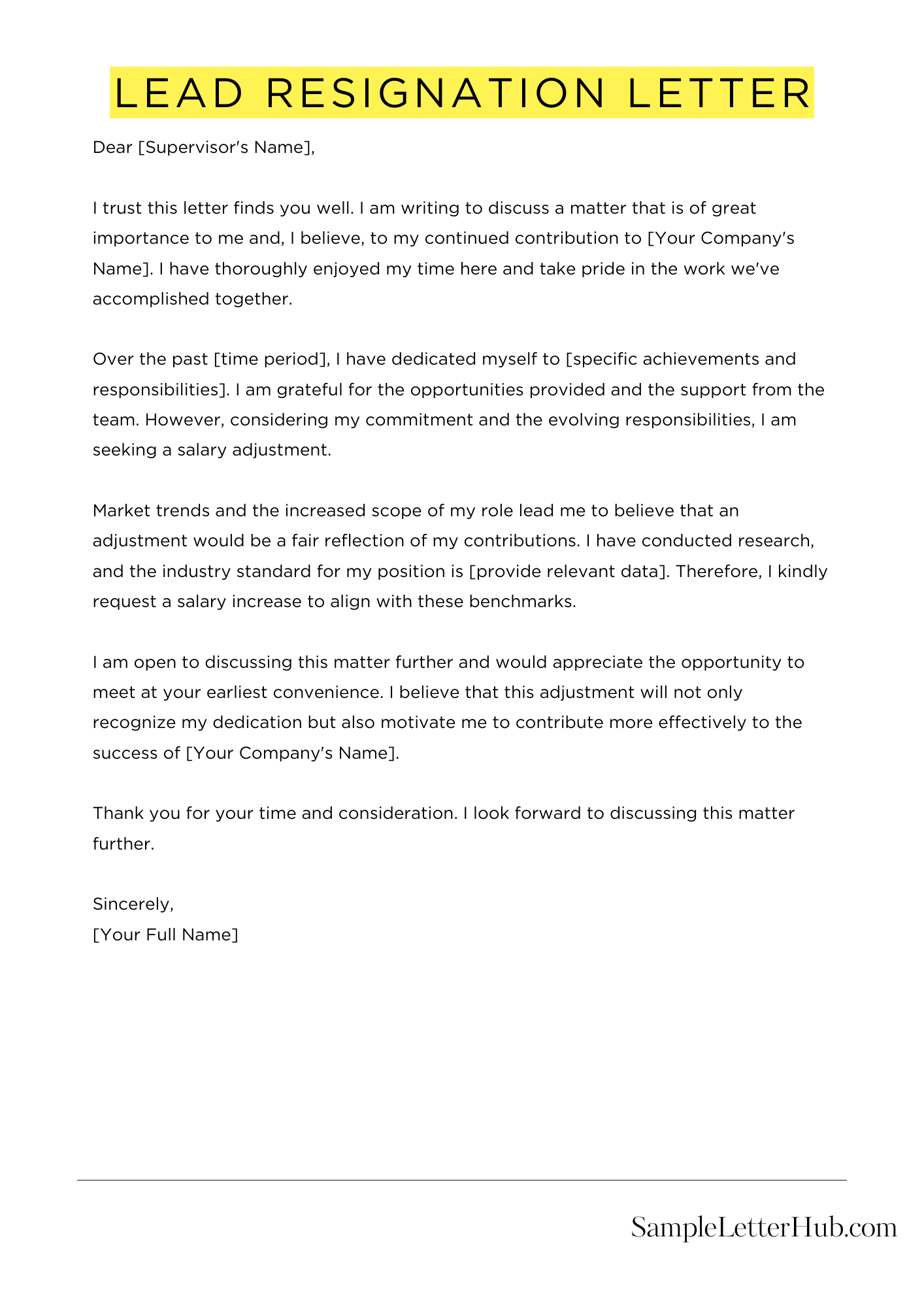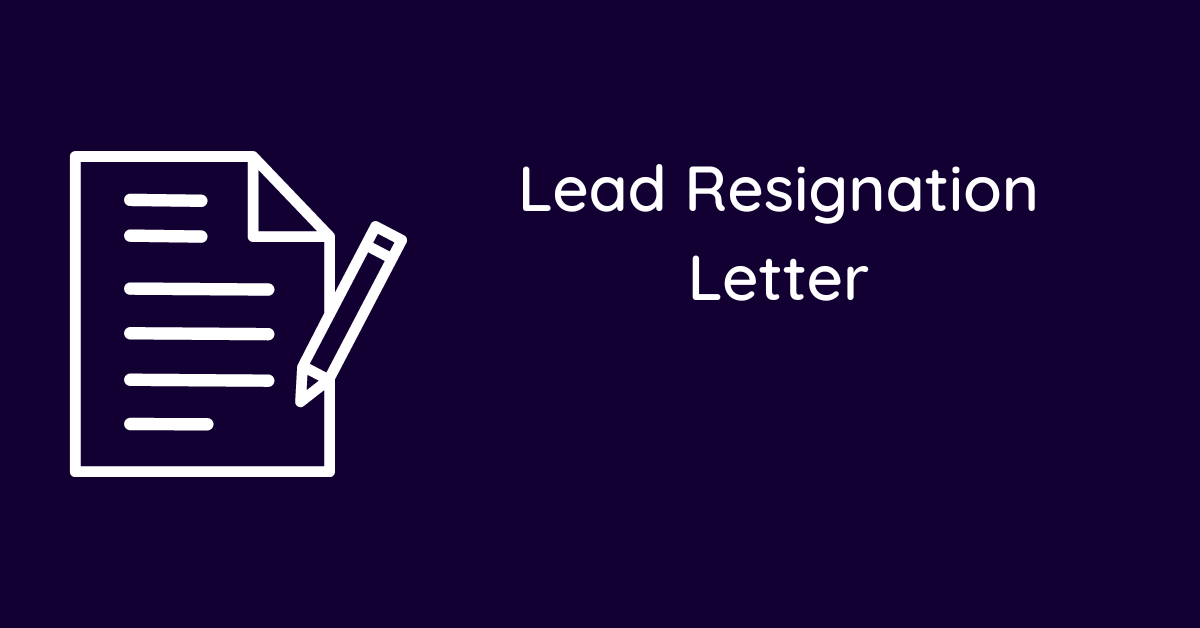When it comes to leaving a job, one of the most important steps is to write a clear and professional resignation letter. This letter should explain your decision to leave and express your gratitude for the opportunity to work at the company.
It’s important to be polite and humble in your letter’s tone. You want to leave a positive impression on your employer, even if you’re not entirely happy with the job. Remember to keep your letter brief and to the point. You don’t want to bore your employer with unnecessary details.
Below, we’ve shared a template lead resignation letter that you can use as a starting point. Feel free to adapt it to fit your own needs.
Lead Resignation Letter
Dear [Recipient Name],
Please accept this letter as formal notification that I will be resigning from my position as [Your Position] at [Company/Organization Name], effective [Your Last Date of Employment].
I have enjoyed my time with the company and am grateful for the opportunities and experiences I have gained. I wish you and the company all the best in the future.
Thank you for your support and guidance during my tenure.
Sincerely,
[Your Signature]
Short Lead Resignation Letter Sample
Please accept this letter as formal notification that I am resigning from my position as Lead at [Company Name]. My last day of employment will be [Your Last Day]. Thank you for the opportunity to grow and learn during my time here. I wish you and the company continued success. I am happy to assist in the transition process to ensure a smooth handover of my responsibilities.
I wish you all the best with your lead resignation letter.
When it’s time to say farewell, expressing your gratitude and best wishes can make the transition smoother:

How to Write a Lead Resignation Letter
1. Be Clear and Concise
When writing a lead resignation letter, it’s crucial to be clear and concise. State your intention to resign from your position and provide your last date of employment. Keep it brief and to the point, avoiding unnecessary details or jargon.
2. Express Gratitude
Take the opportunity to express your gratitude for the experience and opportunities you’ve gained during your time with the company. Mention specific individuals or projects that have made a meaningful impact on you. A sincere expression of appreciation shows that you value the relationships you’ve built.
3. Offer to Assist with the Transition
If possible, offer to assist with the transition process. This could involve training your replacement, providing documentation, or offering to answer any questions during the handover period. Demonstrating your willingness to help ensures a smooth transition and leaves a positive impression.
4. Maintain a Professional Tone
Even though you’re leaving, it’s important to maintain a professional tone throughout your resignation letter. Avoid any negative comments or criticisms. Instead, focus on the positive aspects of your experience and express your best wishes for the company’s future.
5. Proofread Carefully
Before submitting your resignation letter, proofread it carefully for any errors in grammar, spelling, or formatting. A well-written letter reflects well on you and shows that you’ve taken the time to present yourself professionally.
Frequently Asked Questions About Lead Resignation Letter
What is the purpose of a lead resignation letter?
A lead resignation letter is a formal document that a lead employee submits to their employer to announce their decision to leave the company. It typically includes the employee’s last date of employment, a brief statement of appreciation, and any other relevant information.
What are the key elements of a lead resignation letter?
The key elements of a lead resignation letter include:
- The employee’s name and contact information
- The date of the letter
- The name and title of the recipient
- A statement of resignation, including the employee’s last date of employment
- A brief statement of appreciation for the opportunity to work at the company
- Any other relevant information, such as the reason for leaving or any outstanding projects
Before making the decision to resign from your job, it’s essential to consider the legal aspects:
Understanding your emotions after quitting your job is important. Explore why you might be feeling sad:
Related
- Resignation letter sample
- Forced resignation letter
- Resignation letter due to going abroad
- Resignation letter due to marriage
- Resignation letter due to other opportunity
- Resignation letter due to mistake

